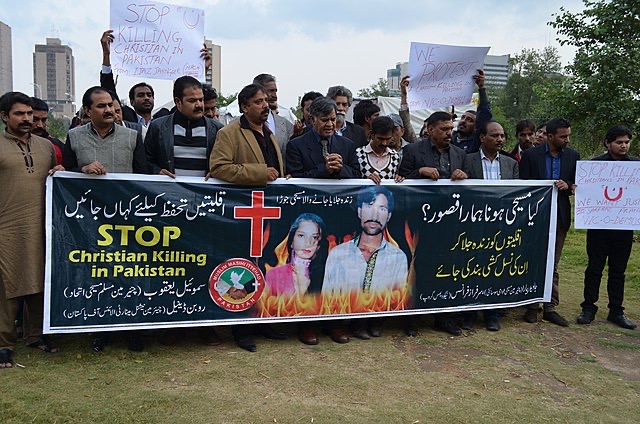In a harrowing account that has gripped both Pakistan and the global community, a Christian man, Waqas Masih, was brutally attacked and left for dead after allegedly refusing to convert to Islam. The incident took place at Subhan Ullah Paper Mills in Ferozewala, near Lahore, where Masih worked. The shocking nature of the crime, involving a throat-slitting attempt by a colleague, has brought renewed attention to the persecution of religious minorities in Pakistan.
Masih’s refusal to renounce his Christian faith and convert to Islam reportedly led to a violent confrontation that could have ended his life. This case not only underscores the vulnerability of religious minorities in the region but also raises urgent questions about freedom of belief, workplace safety, and justice in the face of religious extremism.
The Victim: Waqas Masih
Waqas Masih, a 30-year-old Pakistani Christian, had been employed for the past four years as a supervisor at the Subhan Ullah Paper Mills. Known for his dedication and hard work, Masih was respected by many of his colleagues. He provided for his family through his earnings at the mill and had managed to avoid major conflicts until recently.
Masih’s life took a dark turn when a newly appointed manager began targeting him for his religious beliefs. According to reports, the manager persistently pressured Masih to convert to Islam, making his work environment increasingly hostile. Despite the threats, Masih stood firm in his faith, refusing to succumb to the coercion.
His decision to remain true to his beliefs eventually led to a violent outburst from the perpetrator, setting the stage for the brutal assault that followed.
The Assailant: Zohaib Iftikhar
The man accused of attacking Waqas Masih is Zohaib Iftikhar, a supervisor at the same mill. Described by other workers as domineering and aggressive, Iftikhar had allegedly been harassing Masih for weeks, pressuring him to convert to Islam. Eyewitnesses claimed that Iftikhar frequently mocked Masih’s faith and tried to incite others to isolate him.
On the day of the attack, tensions had reportedly escalated after Masih once again rejected Iftikhar’s conversion demands. This rejection apparently triggered Iftikhar’s violent reaction. Armed with a sharp instrument, Iftikhar slashed Masih’s throat, believing he had killed him. The shocking brutality of the act left colleagues in disbelief and horror.
The Attack
The assault took place inside the paper mill in broad daylight. According to witnesses, Iftikhar confronted Masih during a break and once again demanded he renounce Christianity. When Masih stood his ground, Iftikhar drew a blade and slashed his neck, causing massive blood loss and leaving him critically injured on the factory floor.
Colleagues rushed to Masih’s aid, managing to stop the bleeding and call for emergency medical assistance. He was immediately transported to a nearby hospital, where doctors fought to save his life. Miraculously, Masih survived the attempt on his life, though he remains in serious condition and requires extensive medical care.
The sheer violence of the attack shocked the local community and sparked an outcry on social media and among human rights activists. Many are calling for swift justice and greater protections for Pakistan’s Christian minority.
Medical Treatment and Recovery
After the attack, Waqas Masih underwent emergency surgery. Doctors managed to stabilize him, though he is still recovering from his injuries. The attack left not only physical scars but also psychological trauma that will take time to heal.
Masih’s family, overwhelmed with emotion, expressed gratitude for the outpouring of support but also voiced deep fear for his safety and their own. As Masih remains hospitalized, Christian groups and local community members have rallied to offer assistance, covering medical costs and providing round-the-clock support.



